From The Horse's Mouth: Zachary Mastoon (Boy King Islands) on White Mirror
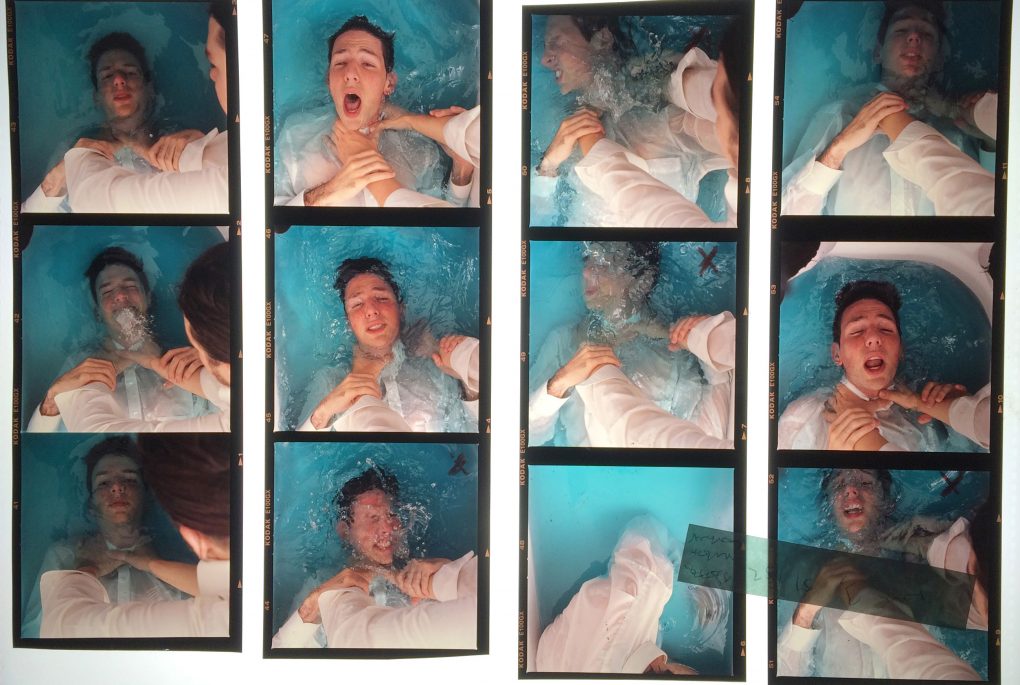
The new album by Boy King Islands, White Mirror, was written and recorded over three years, and is their best and certainly most accessible album to date. While… their signature sound has grown to encompass more psychedelic influences and diverse orchestration over the years, they’ve remained true to their experimental aesthetic, carving out a unique and noisy niche in the ever-evolving non-genre of “rock music.”
They enlisted Stuart Bogie (Antibalas Afrobeat Orchestra, TV on the Radio, Arcade Fire, etc.) on brass and woodwinds, and feature Dominic Johnson (The Rachels) on violin.
They self-released the album just a couple weeks ago after a successful Kickstarter and it is available on limited edition, clear vinyl and CD digipak exclusively through Bandcamp, and digitally in all the usual places (iTunes, Amazon, etc.). Check out the first video from the album here: https://vimeo.com/121809276.
Ghettoblaster recently spoke with Zachary Mastoon about the album, who had this to say.
When did you begin writing the material for White Mirror?
The first couple of songs were written in October of 2011 while I was living in the Mission in San Francisco (we had just finished our second album, Sun Worship, the week prior to my move from Chicago that July). All too soon, I was thrust into a nightmarish vortex of the day job that moved me out there and, by late September, I hadn’t played guitar in months. I was afforded the opportunity to go to northern Italy and model for a Merrell catalog of all things. Well, that serendipitous trip totally reinvigorated me and brought me back to the world of positive thinking.
“Constellation” was written – lyrics and all – the first week I got back to the states, and I came up with the chord progression for “Crying Wolf” on Halloween night. “Twin Flames” followed when I moved back to Chicago only two weeks later, and the rest of the album punctuated 2012 amidst another period of intense life changes.
What was the most difficult song to take from the initial writing stage through recording and mixing? Why was it so troublesome?
While it wasn’t the most difficult per se, certainly the most complicated song from a songwriting perspective was “We Can’t Tell from Where We Are”. It began innocently enough with a chord progression Jason wrote on the guitar. After we fleshed it out with drums, percussion and scratch vocals, I like to think the song went into its fermentation stage because we really didn’t return to it much for over a year!
When we finally revisited it, Jason scrapped and revamped a whole bunch of his guitar work and put some beautiful piano chords together, and I created the outro for the song using a process that – even by my liberal standards – was a little intense… I rendered the unmixed, original song in reverse and chopped out individual chords from that audio. I then composed a new motif using those resultant samples, flipped that composition forwards, and then mimicked it as best I could by re-tracking it with all new instruments and vocals. When it felt like a stand-alone song, all of those final takes were reversed to sound like the sample-based, scratch version I did in the first place: backwards!
Which of the songs on the record is most different from your original concept for the song?
I think “White Mirror” may stand out to me as the one which evolved the most organically over time. I wrote the changes for the verse on a camping trip and suppose I initially conceived it being only guitar and voice, but of course the more I listened to it, the more I heard other things happening. That’s always how it goes I guess? The icing on the cake was tracking with my friend Stuart Bogie at his studio in Brooklyn. I asked him to play flute on it, but then suggested he try clarinet as well. I had to catch a flight back to Chicago and left his studio after he cut the flute parts. The next thing I know, he sends me a version of the song with this amazing arrangement on it and I just lost it!
Did you have any guest musicians play or sing on the record?
As I mentioned, Stuart Bogie (Superhuman Happiness, Antibalas Afrobeat Orchestra, TV on The Radio, Arcade Fire, etc.) did a lot for this record. He played sax, flute, clarinet, jaw harp, bass harmonica… I had him do whatever he could. He and I have been working together on music since I was six years old, so there’s a real chemistry there.
Jacob Croegaert plays bass on a few songs, and my friend Owen O’Malley of Bailiff absolutely ripped the bass part on “Twin Flames”. He laid down bass on another song we left off the album and I almost wanted to keep it on just because of his playing. Dominic Johnson (Brian Wilson, Belle & Sebastian, The Rachels, New Millennium Orchestra) played violin on a few songs and brought his friend Dan Klingler along for a couple sessions on cello. Those guys really made their parts sing and were ultra patient with our notation!
Speaking of singers, Jason’s wife Beth did her usual background vocal duties (she has been singing on Boy King Islands records since the beginning), and we brought on our friend Lashandra Smith-Rayfield for a tune. However, I was most excited about my future wife Alex Lewis’ voice on “We Can’t Tell from Where We Are” and am also secretly happy she is finally singing karaoke with me in public! I almost forgot… Our engineer Dan Smart was eating some celery while I was recording “Mistakes to Learn”, and I made him chew some on the track.
Who produced the record? What input did that person have that changed the face of the record?
Like our last two albums, Jason and I produced this record together, but Dan (Smart) really became a third producer early on. He was the pair of fresh ears and our balance in the tracking and mixing sessions. He was the one to say, “do you really need fifteen guitar tracks on this song?” Most of the time, the answer was still a resounding “yes!” but at least he was asking. No, but seriously, he was able to translate whatever we had in our minds into sound, and is the most objective sounding board I have ever had for my music.
Is there an overarching concept behind your new album that ties the record together?
In the year I wrote the lyrics for the album, I lost my father, and regained my love, Alexandra, after a year of being apart. Nothing puts life under a microscope like death and love. The album’s title “White Mirror” is meant to symbolize exactly what you think it should: a reflection of higher truth (white symbolizing all light and all color, with darkness being the potential for light and not the opposite of light). Each song on the album therefore is a different meditation on life, love, and death, with the title track of course being the most exoteric statement on this theme. I was also getting deeper into theosophy and esotericism over this period, and so I won’t deny that a lot of those ideas snuck not-too-discretely into the content, song order, and even album artwork.
Have you begun playing these songs live and which songs have elicited the strongest reaction from your fans?
There has never been a performance of any of the Boy King Islands material actually. I had entertained putting together a band, but Jason and I barely had the time between us to write and record this album let alone teach other people the parts to rehearse and play! The songs I have had the most feedback on however are “Crying Wolf” and “Twin Flames”; funnily enough the former is about denying love and the latter is about accepting it.
“You’d think that people would have had enough of silly love songs. I look around me and see it isn’t so”
(“Twin Flames” and “Crying Wolf” are both on their Soundcloud (soundcloud.com/boykingislands), and the video for “Constellation” is here: https://vimeo.com/121809276
Visit them at Bandcamp here: https://boykingislands.bandcamp.com/album/white-mirror.)


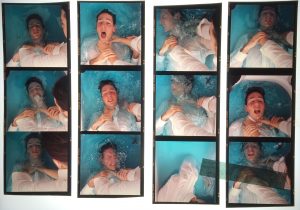
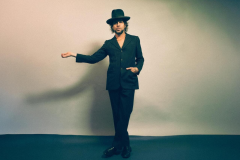
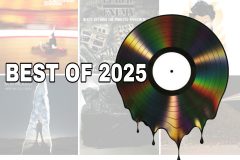
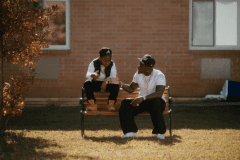
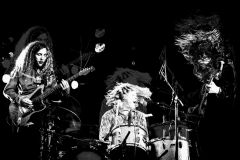

Social Media